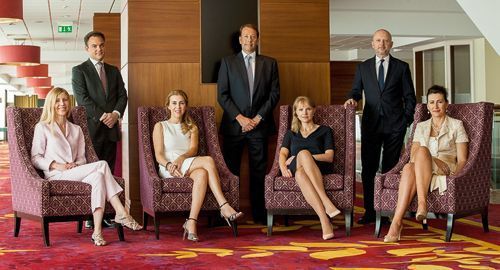The participants of our roundtable discussion:
Monika Rajska-Wolińska
As managing partner for Poland she is responsible for the strategic and operational activities of the company. She joined Colliers International Poland in 1999. Before joining Colliers she was with Knight Frank (a broker in the office department) and Cushman & Wakefield (property manager), among others.
Malgorzata Żółtowska
The head of valuations and COO for the CEE region at JLL. Her responsibilities include managing the company’s increase in effectiveness in the region and the supervision of areas such as HR, marketing and corporate social responsibility.
Daniel Bienias
Managing director of CBRE Poland since August 6th, 2015. He has been with the company for five years. Before joining CBRE he was employed by CA Immo as the head of the marketing and lease department.
Michał Ćwikliński
As managing director and head of the investment department at Savills Poland, Micha





























































